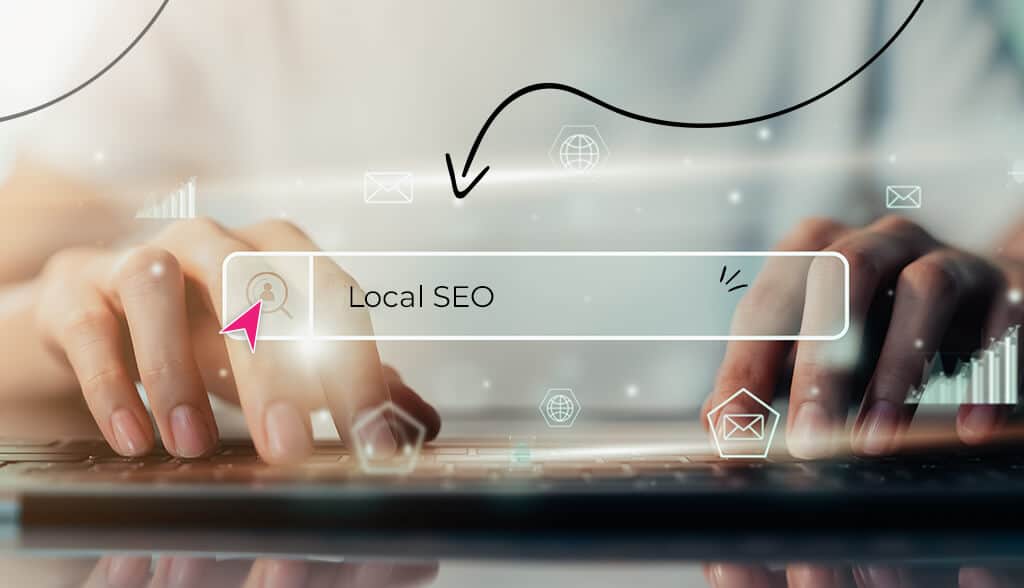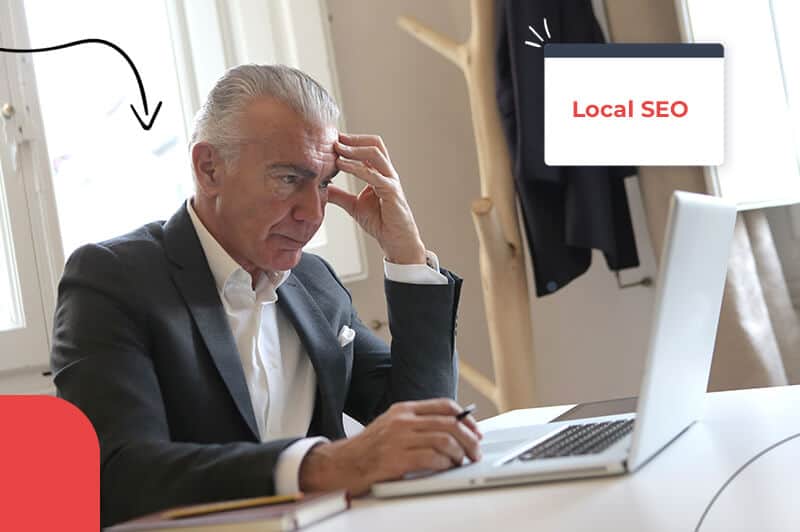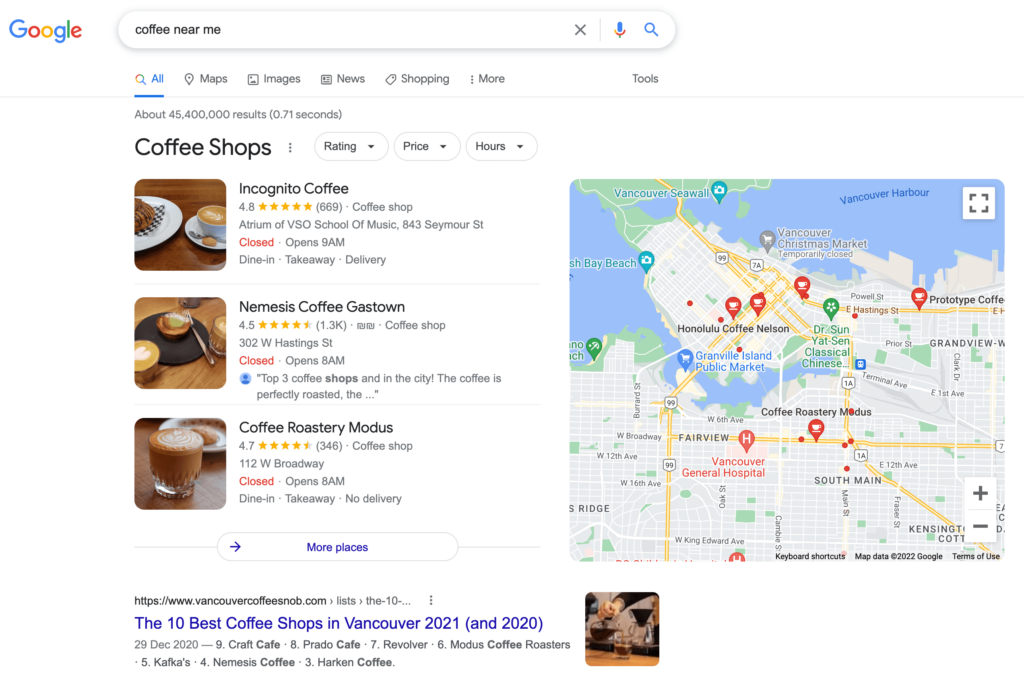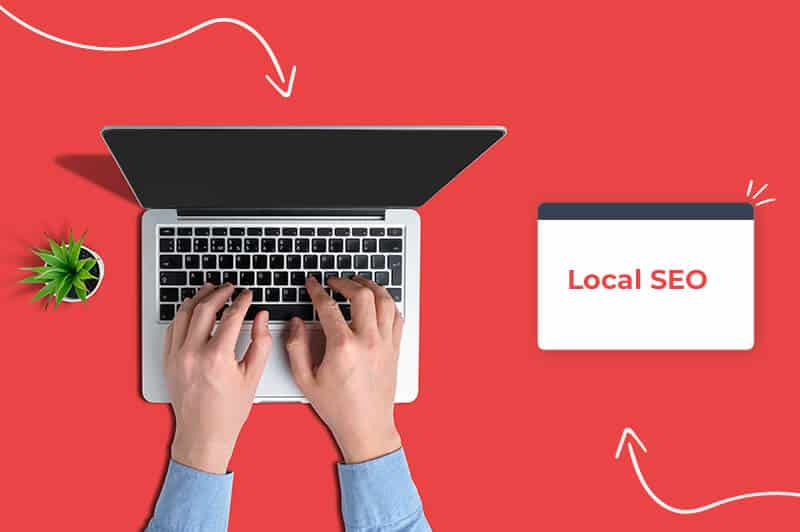
Are you a small business that’s working on building your marketing strategy? Well, if you are, then you probably know there’s a lot that goes into marketing your business (and this is just the beginning).
You’re on the best social media platforms for your business, have a website to bring in traffic – you’ve checked everything off the list to attract an international audience.
But what about your local community? How do you reach out and engage with them?
This is where local Search Engine Optimization (SEO) comes into play. While face-to-face interactions are important for your business, local SEO brings in customers in the first place.
But, hold up, Natasha. What is local SEO anyways? Well, you’ve come to the right place. In this post, I’m going to talk about what local SEO is and why your business needs it.

Now, I can explain this using big words and confusing analogies, but honestly, who wants that? To help explain what local SEO is, I interviewed our SEO specialist Gordon, as he shared his insights about local SEO (and trust me, he knows what he’s talking about).
So, let’s keep things simple. “Local SEO caters to local searches,” Gordon says. “So, what is a local search? If you’re on Google, it could be ‘coffee near me’ or ‘mechanic near me’ – these are all nearby searches.”

For example, let’s say you want to grab a coffee, but you don’t know where to go. So, you Google “coffee near me.” Google Maps will show you all of the cafes in your area. Google understands that you’re looking for coffee within a specific location and gives you nearby coffee shops. That is local SEO.
“When you use local SEO, your business shows up for local searches,” Gordon adds. And that’s where you want your business to be.
“But local SEO isn’t just about Google,” Gordon adds. “It’s search engine visibility in general, and there are all types of search engines.” Other local business directories include Yelp, Facebook, Bing Places, Better Business Bureau, and Foursquare. These local directories allow you to freely advertise your business to your local audience.
Having a business profile helps make your business visible on search engines. “But local SEO also means making sure your website includes a business address, testimonials – if you have a blog, mention the area you’re talking about in your posts – all these things play a role in building your local SEO and helping you rank on search engines.”

You see that local SEO helps put your business on the map, but is it really a necessity? Well, if you’re trying to grow your local audience and build a community around your business, then yes, it is.
But there’s more to it than that. It’s time we dug a little deeper into why your business needs local SEO.
You’re a small business, so you don’t have a huge marketing budget to throw into the wind (and even if you do, you want to put that money to good use).
And local SEO is a good place to start. Why? Because setting up your local business listings are free with tools like Google Business Profile and Facebook. All you have to do is maintain your listings.
So, if you’re looking to gain visibility without spending a dime, then local SEO is what you need to jump on.
Here’s the thing, when a customer is looking up “dog treats near me” on Google, they’re not curious – they’re ready to buy.
But don’t just take my word for it. Search Engine Watch found that 80% of local searches done on mobile devices convert into sales. Local SEO places your business right in front of the customer’s eyes when they want to buy the product or service they’re looking for. This increases the likelihood of them either contacting your business for more information or making a purchase.If you create an ad on Instagram or Facebook, not only do you pay for it, but it’s only visible for a certain period of time (unless you keep paying). But with local SEO, these results are long-lasting (and free).
Sure, you’ll need to maintain your business profiles, but once your business appears in the search results, you’re likely to keep that position for a longer period of time.
While nothing is guaranteed, if you update your business profile, you can achieve long-lasting search engine rankings.
The goal of most small businesses is to gain visibility. If you’re using local SEO, potential customers will find your business when they search for specific products or services you offer.
The more people who see your business in the search results, the better. Not only are you increasing your business’s brand awareness, but you’re increasing traffic to your site as well. It’s a win-win.
If you want your business to grow, data is key. Sure, you can guess what’s working and not working, but why guess when you have the numbers?
The beauty of local SEO is that it gives you measurable insights to help you improve your marketing.
Local SEO collects information on how your website performs, the keywords used to find your business, and the areas you need to work on.
Will the competition ever end? No, not when you’re in business, baby! While competition isn’t a bad thing, you want to stay two steps ahead.
One way of doing so is through local SEO. Let’s say two businesses selling handmade baby blankets. Business ‘A’ has a local SEO presence, and business ‘B’ does not. Which business is going to be seen on Google? You know the answer.
Having an online SEO presence can help your business gain visibility and traffic. By doing so, you have a competitive advantage that keeps you one step ahead in the game.
You now know the importance of having a local SEO presence, but where do you go from here? Now it’s time to open a Google Business Profile and even a business page on Facebook or Yelp business profile.
To learn how to set up a Google Business Profile, click here for our step-by-step guide.
While we do recommend adding your business to other directories, starting with your Google Business Profile first – it’s the most relevant for your business.
This portion of our website is for informational purposes only. Tailor Brands is not a law firm, and none of the information on this website constitutes or is intended to convey legal advice. All statements, opinions, recommendations, and conclusions are solely the expression of the author and provided on an as-is basis. Accordingly, Tailor Brands is not responsible for the information and/or its accuracy or completeness. It also does not indicate any affiliation between Tailor Brands and any other brands, services or logos.
Products
Resources
©2025 Copyright Tailor Brands